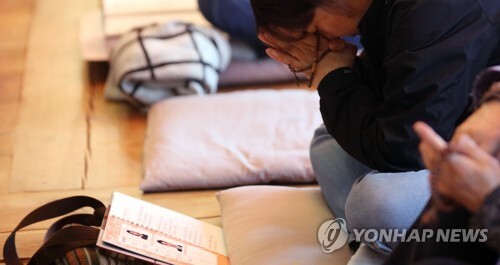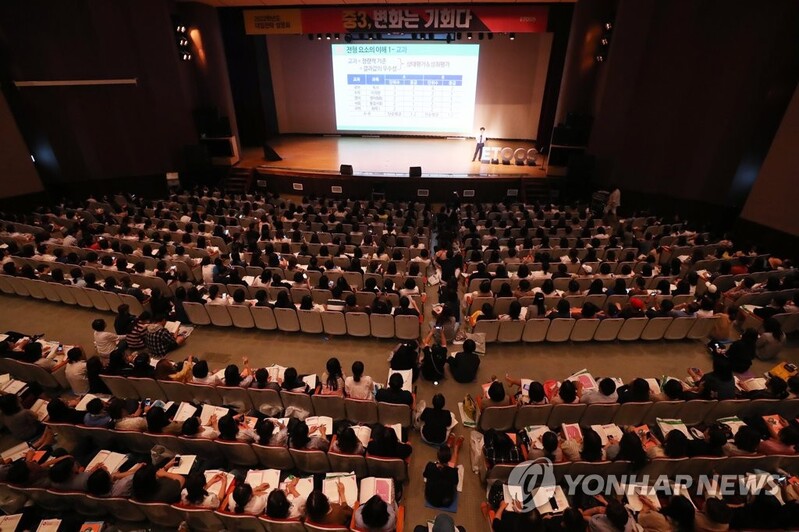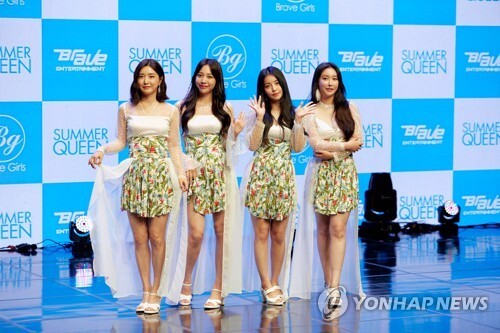by Yun Ji Hyun / Cha Min Kyung
Chimat Baram
[ENG] A Korean term that refers to the fierceness in women
 |
| ▲ This photo provided by Getty Image Bank shows an illustration of "Chimat-Baram" or a "Helicopter mom" (PHOTO NOT FOR SALE) (Yonhap) |
'Chi-mat Ba-ram' is a compound of the words '치마·[chi-ma],' which means skirt in Korean, and '바람·[ba-ram],' which translates to wind. The term literally refers to wind caused by the movement of a woman's skirt hem or a woman who is not properly dressed. However, in Korea, chimat-baram are often used to metaphorically express women's extreme behaviors or actions rather than its literal translation. The word has a socially negative connotation as it means a woman is overreacting or overly obsessive about a certain situation.
▲ The relationship between Korea's fiercely competitive education system and 'chi-mat ba-ram'
Among the various forms of chimat-baram, one of the most representative example are Korean moms' excessive interest of their child's education.
In the education community, mothers who consistently intervene in their child's education curriculum during the preparation process for entrance exams and are willing to sacrifice anything to achieve great results, are considered the symbols of chimat-baram.
 |
| ▲ This photo taken on Oct.15, 2017, shows a parent prays at the Jogyesa Temple on the 15th, about a month before the Korean college entrance exam. (Yonhap) |
The phrase was coined in the 1960-70s and began to be commonly used by Koreans. At that time, due to a rapid economic growth, there was a big perception within the Korean society that people had to graduate from prestigious schools in order to succeed socially.
In addition, there were many students who wanted to enroll in different middle and high schools, however the limited seats available in schools created a fierce competition for the best entrance exam scores.
In order to get accepted in any middle or high school, it was mandatory for students to take a test. The ranking of students' test scores determined which schools they were allowed to apply for. For this reason, it was common for elementary school students to receive tutoring and study until late at night.
The entrance examination system for middle school students was eventually abolished in 1968 on the grounds of extreme competition created among children, however the competition to get accepted into college is still fierce in Korea. Although the admission system for high schools have also been standardized, there are still many students preparing to enroll in prestigious secondary schools.
Daechi-dong, an affluent neighborhood in Seoul which is also known as the "top private education area in Korea," is over flooded with various families who move in every year to send their children to good universities. After students finish their college entrance exams, the mothers overcrowd various college entrance information sessions in order to receive the best tips for their children.
 |
| ▲ This photo taken on Sept. 8, 2018, shows hundreds of students and parents listening to the "Etoos Education 2022 College Entrance Strategy Information session" held at Sookmyung Girls' High School. (Yonhap) |
Recently, the nickname "helicopter mom" are frequently used instead of chimat-baram as a way to refer to mothers who have excessive interest for their child's education.
The title of "helicopter mom" was made to express mothers who always hover and watch over her children, and is at standby like a helicopter whenever and wherever she needs to, meddle and help her kids.
Additionally, chimat-baram is sometimes used as a sarcastic or disparaging expression when women "create a scene" or attracts attention by acting in a certain way in various fields such as politics and economy.
Some criticize that the word "chimat-barma" itself violates gender equality and is an expression that disparages women.
▲ Recent Issue: K-pop girl group Brave Girls' latest title track "Chi Mat Ba Ram"
The reason why attention to the word 'chimat-baram' is recently resurfacing again is because of girl group Brave Girls.
The title track of "SUMMER QUEEN," the fifth EP released by Brave Girls, who earned a belated success this year with their 2017 dance song "Rollin," was announced to be titled "Chi Mat Ba Ram."
 |
| ▲ This photo, provided by Brave Entertainment, shows K-pop girl group Brave Girls posing at a news conference on June 17, 2021. (PHOTO NOT FOR SALE) (Yonhap) |
The song portrays a different meaning of "chimat-baram" to the commonly understood connotation within Korean society.
Keeping in mind of the overall sentiment of the song, the lyrics, "The skirt wind is blowing / Love comes to me too, yeah" seems to be used as a way of expressing "chimat-baram" as the feeling of excitement of love.
Although Brave Girls were a little confused by the title "Chi Mat Ba Ram" used for a bright and cheerful song, the members said they were able to understand after hearing the producer's explanation.
During the news conference for Brave Girl's album release, the group's main vocalist Minyoung said, "We were confused at first when we heard about the title of the main track but understood our chief producer's intention when he said he chose the word in hopes Brave Girls would take the K-pop scene by storm."
(END)
(C) Yonhap News Agency. All Rights Reserved





















![[박스오피스] '만약에 우리' 200만 돌파…3주째 주말 1위](https://korean-vibe.com/news/data/20260126/yna1065624915992608_675.jpg)

![[테크스냅] 티빙, 국내 TV 드라마 일본·아태 17개 지역 공개](https://korean-vibe.com/news/data/20260126/yna1065624915992582_728_thum.jpg)